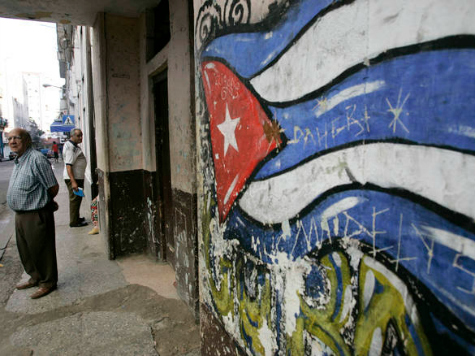
The head of Cuba’s minority Muslim community announced this week that the Cuban government has rejected plans to build a mosque for Havana’s Islamic population, in yet another crackdown on religious freedom on the island.
According to World Bulletin, Pedro Lazo Torres, who organizes Muslim prayers at his home in Havana and leads the tiny community, announced that plans to build a mosque in the city have come to a halt– not because of any problems with the sponsor group, the Turkish Religious Affairs Foundation, but because the communist Cuban government opposes the establishment of a religious center for Muslims in the city.
Torres told media that he did not expect the government to reject the mosque plans despite the continued oppression of religious groups on the island because of successful plans to build a new Russian Orthodox Church. Torres estimates the Muslim population of Cuba to be about 4,000, many of whom worship in his living room, as there are no mosques in the country.
The Cuban government’s rejection of the mosque follows a visit by Turkish officials in April and even the designation of specific land to use for constructing the mosque. In April, World Bulletin reported that Mustafa Tutkun, the assitant manager of the Turkish Religious Affairs Foundation, visited Cuba and affirmed that the mosque would mirror the design of the Ortakoy mosque of Istanbul. It was to be one of several projects by the Turkish group in the Caribbean. At the time, Turkish Religious Affairs Foundation press secretary Yuksel Sezgin said: “We believe the mosque will fit in perfectly with the European architecture of historic Old Havana.” The mosque was to have served 3,500 muslims.
Cuba’s persecution of religious groups, believed to be anathema to the tenets of the Marxist Cuban Revolution, has persisted into the 21st Century. While Cuba did approve the construction of a Catholic church this year– the first church built on the island since the Revolution– it has also undertaken mass arrests of Catholics for worshipping in the public eye. In a particularly violent incident last July, the Cuban government arrested 100 women for participating in a mass commemorating the victims of the March 13 Tugboat Massacre, in which the Cuban government drowned 47 men, women, and children fleeing the island.
Political dissidents have also experienced the brutality of the Cuban government, with record-shattering numbers of arrests in 2014. Some prominent dissidents, particularly hunger strike veteran and Sakharov Prize winner Guillermo Fariñas, were arrested on a weekly basis.

COMMENTS
Please let us know if you're having issues with commenting.